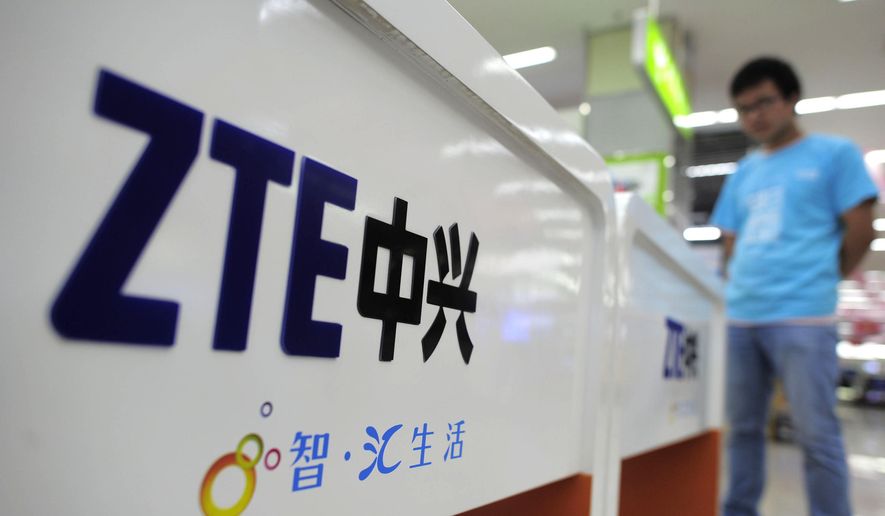China announced Tuesday a reduction in tariffs on cars and car parts, keeping a pledge Beijing made to appease President Trump’s demand for a fairer trade relationship.
The move came amid reports that the Trump administration was nearing a deal to lift the ban on cellphone maker ZTE Corp., although the two developments were not officially linked.
Mr. Trump ordered a review of the ZTE ban in response to a personal request by Chinese President Xi Jinping. The ban would devastate ZTE, the second-largest manufacturer of phones in China, and put many of its 70,000 employees out of work.
The U.S. Commerce Department imposed the ban over ZTE violating an agreement on punishing employees that was reached after it was caught illegally shipping U.S. goods to Iran.
The phones also have been banned on U.S. military out of security concerns.
Senate Minority Leader Charles E. Schumer sounded an alarm over the reported lift of the ban.
“If these reports are true, the fines and board changes will do nothing to protect American national or economic security and are simply a diversion from the fact we have lost,” said Mr. Schumer, New York Democrat. “President Xi has played President Trump and [Treasury] Secretary Mnuchin.”
Both the lower car tariffs and the possible ease of sanctions on ZTE closely followed a breakthrough in trade talks.
The framework, announced Saturday after two days of talks in Washington, included agreements by China to increase imports of U.S. goods and to address the theft or forced transfer of intellectual property from American firms doing business in China.
The detail will have to be hammered out in further negotiations.
The Trump administration is pushing Beijing to drop trade barriers and reduce America’s $375 billion trade deficit with China.
Beijing had previously promised to lower tariffs on imported cars and car parts.
China’s Trade Ministry said it was slashing tariffs on imported automobiles to 15 percent of wholesale value from 25 percent. The tariff on imported auto parts dropped to 6 percent from rates that currently range from 8 percent to 20 percent.
Mr. Trump often pointed to the disparate tariffs on cars — the U.S. has a 2 percent tariff on cars — as evidence of China’s unfair trade practices.
• S.A. Miller can be reached at smiller@washingtontimes.com.




Please read our comment policy before commenting.